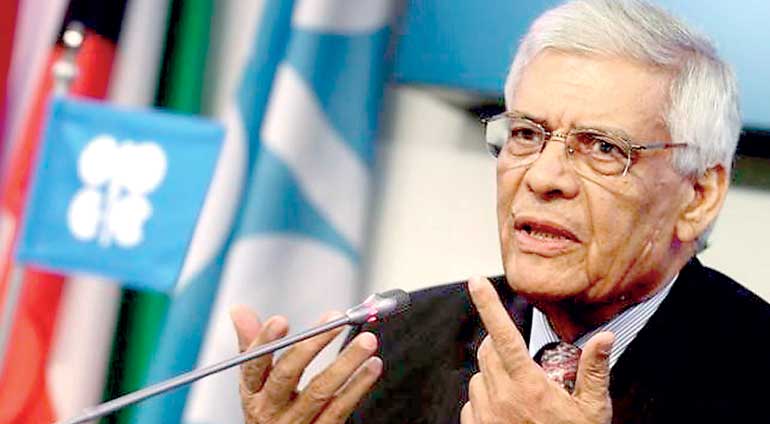Monday Feb 23, 2026
Monday Feb 23, 2026
Wednesday, 14 October 2015 00:00 - - {{hitsCtrl.values.hits}}
 OPEC Secretary-General Abdullah al-Badri addresses a news conference after a meeting of OPEC oil ministers at OPEC's headquarters in Vienna
OPEC Secretary-General Abdullah al-Badri addresses a news conference after a meeting of OPEC oil ministers at OPEC's headquarters in Vienna
LONDON (Reuters): OPEC forecast on Monday that demand for its oil in 2016 would be much higher than previously thought as its strategy of letting prices fall hits U.S. shale oil and other rival supplies, reducing a global surplus.
In a monthly report, the Organization of the Petroleum Exporting Countries (OPEC) forecast the world would need 30.82 million barrels per day (bpd) from the group next year, up 510,000 bpd from the previous prediction.
OPEC’s forecast, if realised, would be a further indication its strategy is working. The group last year refused to prop up prices and instead raised output, seeking to recover market share taken by higher-cost rival production. Oil is trading just below $53, half its price of June 2014.
Supply outside OPEC is expected to decline by 130,000 bpd in 2016, the report said, as output falls in the United States, the former Soviet Union, Africa, the Middle East and much of Europe. Last month, OPEC predicted growth of 160,000 bpd.
“This should reduce the excess supply in the market and lead to higher demand for OPEC crude,” OPEC said in the report, “resulting in more balanced oil market fundamentals”.
The higher call on OPEC comes despite weaker global demand growth overall. OPEC trimmed its estimate of 2016 world oil demand growth by 40,000 bpd to 1.25 million bpd, citing slower growth in China.
Other forecasters also expect less oil from non-OPEC. The International Energy Agency, which advises industrialised countries, sees an even bigger drop in their supply in 2016. The next IEA report is due out on Tuesday.
Output in the United States - the biggest source of non-OPEC supply growth in recent years - is being hit by reduced drilling activity and tighter credit conditions have reduced companies’ access to funds, OPEC said.
The report said OPEC members continue to boost supplies. According to secondary sources cited by the report, OPEC pumped 31.57 million bpd in September - up 110,000 bpd from August and almost 2 million bpd more than its prediction of the demand for its crude this year.
With the higher demand it expects for OPEC crude in 2016, the report points to a 750,000 bpd supply surplus in the market next year if the group kept pumping at September’s rate, down from 1.23 million bpd indicated in last month’s report.
In the third quarter of 2016, demand for OPEC crude will rise to an average of 31.50 million bpd, OPEC predicted - similar to current output and leaving almost no surplus.
Saudi Arabia, the driving force behind’s OPEC’s refusal to cut output, told OPEC it trimmed production to 10.23 million bpd in September, a further decline from June’s record rate.